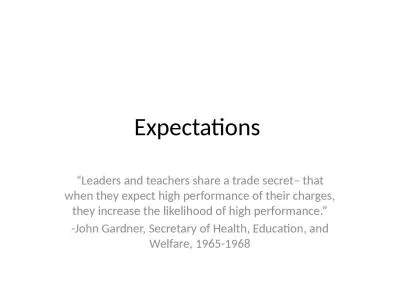PPT-‘Great Expectations’
Author : sherrill-nordquist | Published Date : 2016-12-19
Learning Objective To read and understand Chapter 1 of Great Expectations Rewatch the opening of Great Expectations As you watch make notes on what sort of atmosphere
Presentation Embed Code
Download Presentation
Download Presentation The PPT/PDF document "‘Great Expectations’" is the property of its rightful owner. Permission is granted to download and print the materials on this website for personal, non-commercial use only, and to display it on your personal computer provided you do not modify the materials and that you retain all copyright notices contained in the materials. By downloading content from our website, you accept the terms of this agreement.
‘Great Expectations’: Transcript
Download Rules Of Document
"‘Great Expectations’"The content belongs to its owner. You may download and print it for personal use, without modification, and keep all copyright notices. By downloading, you agree to these terms.
Related Documents














